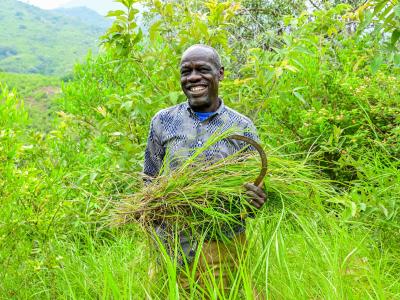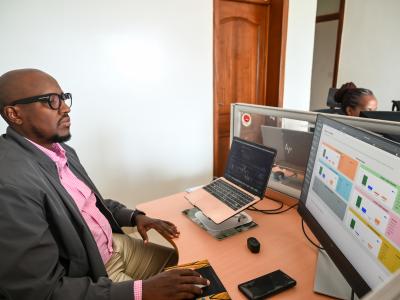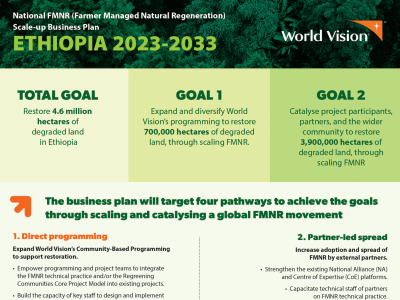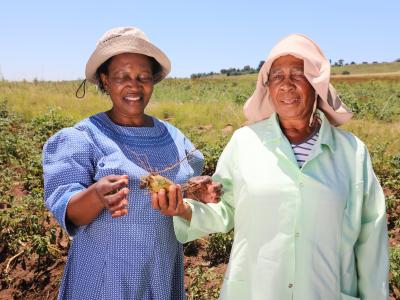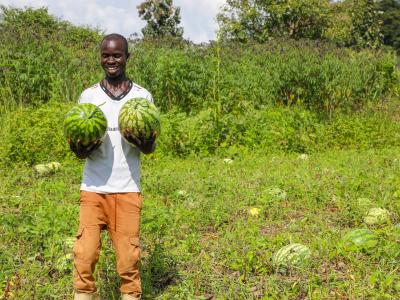article / December 17, 2025
Seeds of Renewal: Musa’s Transformation Through Farmer Managed Natural Regeneration (FMNR)
Discover how, after retiring from teaching, Musa Amdany transformed his once-barren farm in Baringo County through Farmer Managed Natural Regeneration (FMNR), applying skills gained through World Vision’s CRIFSUP project to restore soil health, boost productivity, and farm sustainably.
article / February 10, 2026
Innovation: How World Vision Rwanda transformed fleet management
Delivering humanitarian and development programs across Rwanda requires more than strategy and partnerships. It requires movement, often across long distances, challenging terrain, and dispersed communities. For World Vision Rwanda, vehicles are essential operational assets that enable staff to deliver programs across dispersed and often hard-to-reach communities.
publication / September 6, 2025
Farmer Managed Natural Regeneration Business Plan - Ethiopia
World Vision Ethiopia aims to restore 4.6M hectares by 2033 with FMNR, reviving ecosystems and improving lives through community-led action.
article / February 3, 2026
From Struggle to Stability: World Vision Strengthens the Matelile Potato Farmers Association
Through World Vision’s support, Matelile PotatoFarmers Association moved from poverty to profit, empowering women, feeding families, and building resilience.
article / February 3, 2026
How World Vision’s GEWE Project helped Leronti Farmers Cooperative thrive
How Leronti Farmers Cooperative transformed hunger into hope through gender equality, market-led farming, and savings—improving livelihoods in Thaba-Tseka.
article / January 28, 2026
Hands That Sow Hope: A 27-Year-Old Farmer Cultivates A Thriving Future
Mawa discovered empowerment through agriculture. By growing watermelons, he not only secured food and income but also cultivated self-reliance and a renewed sense of hope.
